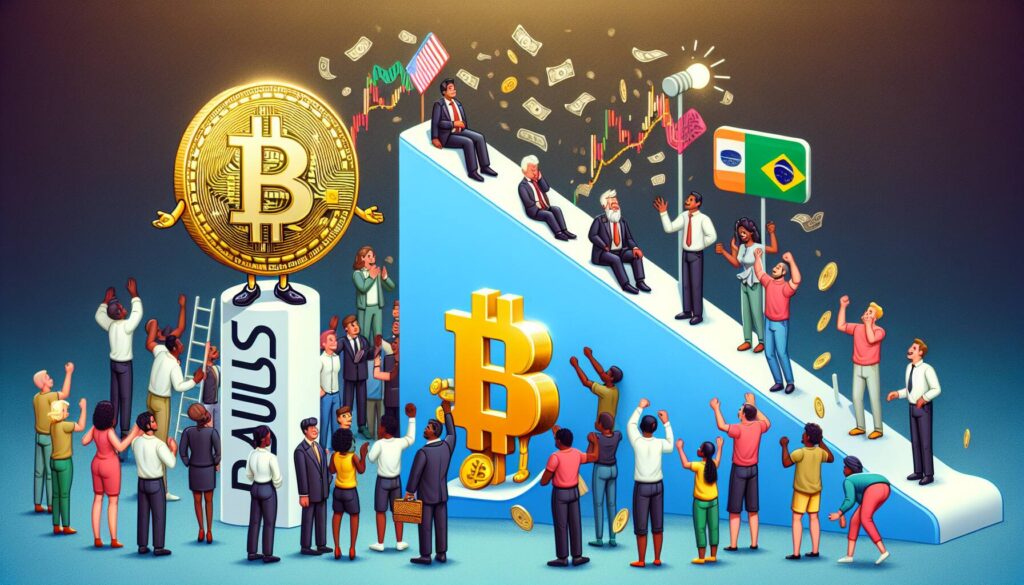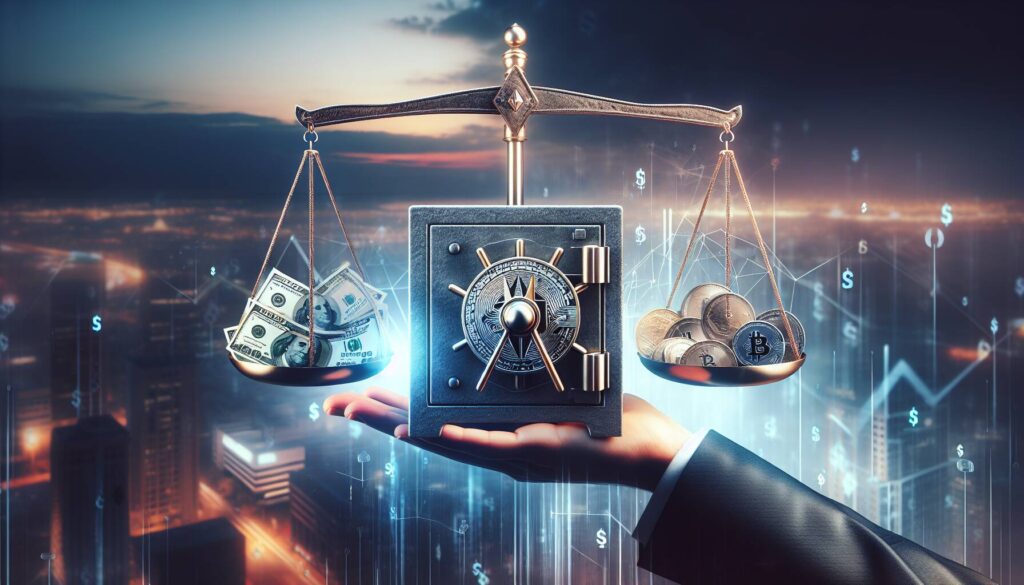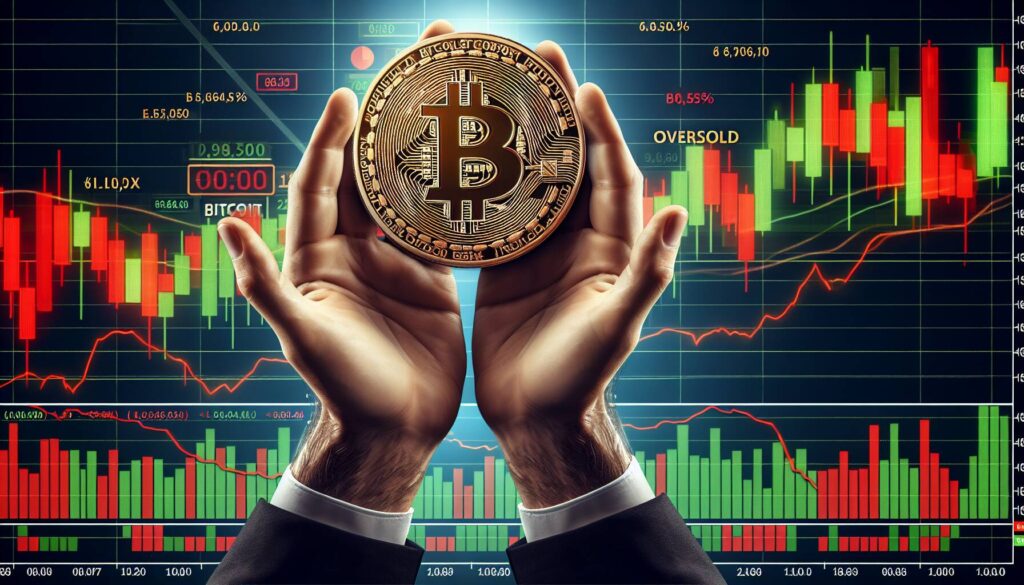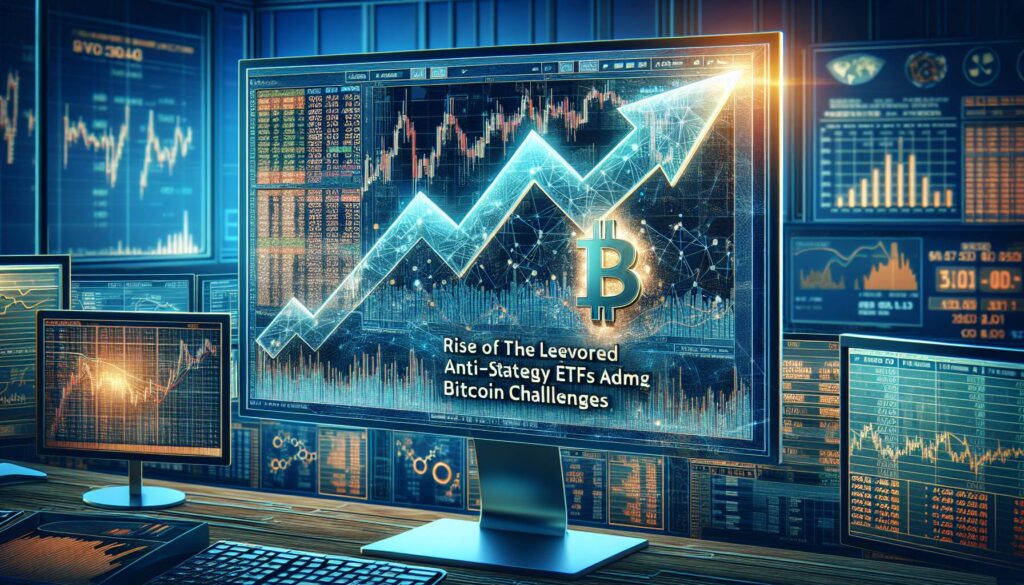The global financial landscape is buzzing as the U.S. dollar pauses its upward trajectory, while the Brazilian real faces significant pressure amid escalating tensions. President Trump has declared his intention to impose a hefty 50% tariff on Brazilian products, citing what he describes as a ‘witch hunt’ against Brazilian President Jair Bolsonaro. This trade move is seen as a direct response to recent criticisms aimed at Bolsonaro from U.S. tech firms.
As these developments unfold, the cryptocurrency market is also reacting, with Bitcoin nearing its record high. The volatile nature of Bitcoin has drawn increased interest from investors seeking alternatives amid uncertain economic conditions. The juxtaposition of traditional currency challenges against the backdrop of cryptocurrency’s rise illustrates the evolving dynamics of global finance.
“Dollar catches breath, Brazil real slides on tariff threat; bitcoin near record high” – Reuters
“Trump Pledges 50% Tariffs Against Brazil, Citing ‘Witch Hunt’ Against Bolsonaro” – The New York Times
As Asian stock markets anticipate a rally sparked by a boost in tech stocks, the interconnectedness of these financial elements becomes clear. Investors are keenly watching the implications of the proposed tariffs and how they may affect broader market sentiments, including cryptocurrencies, going forward.
“Brazil Will Pay 50% Tariff for Attacks on Bolsonaro, Tech Firms, Trump Says” – WSJ
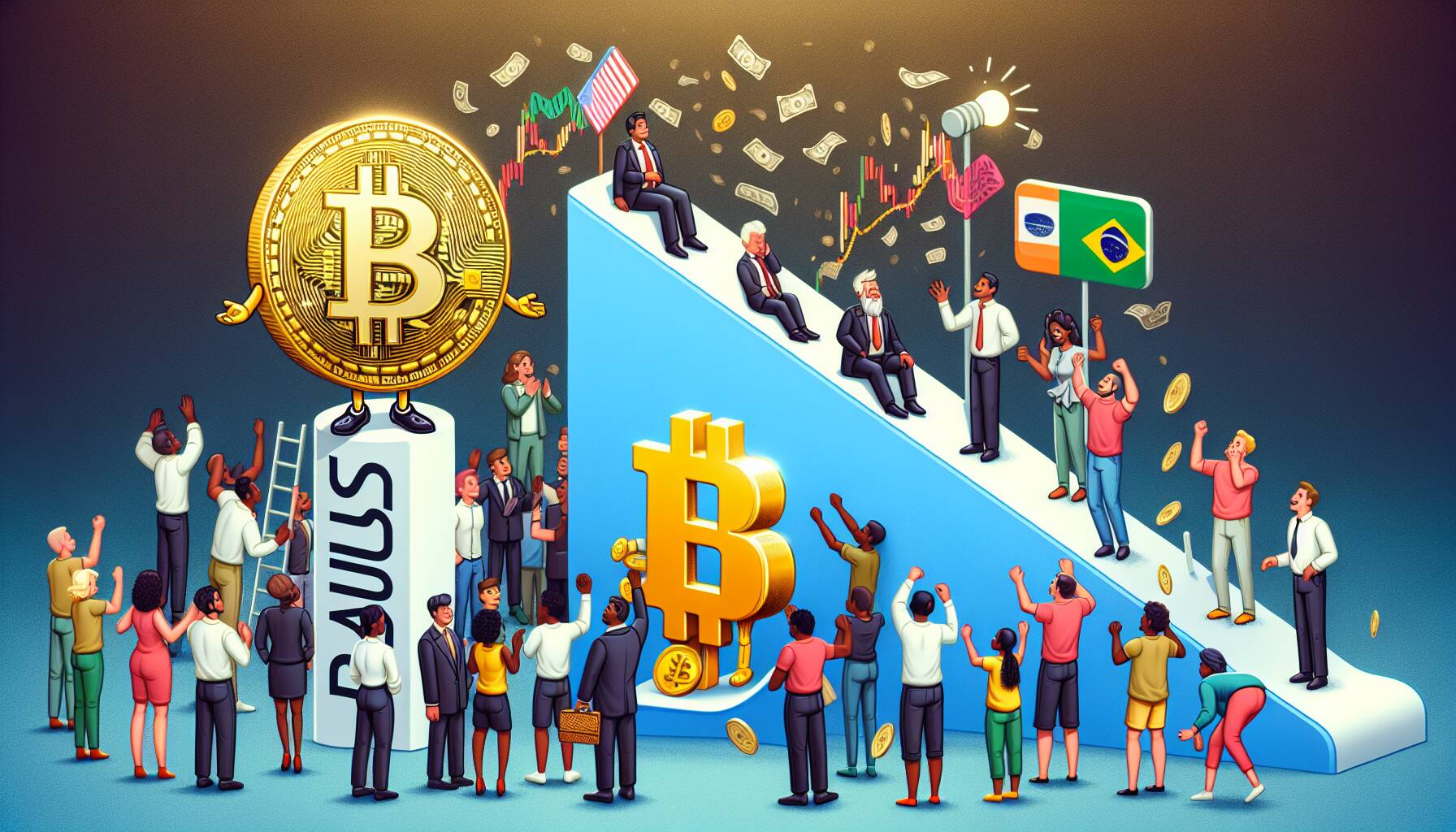
Economic Fluctuations and Global Trade Impact
This article highlights significant economic events affecting currency values and international trade policies.
- Dollar Recovery: The dollar shows signs of stabilization, impacting global trade dynamics.
- Brazilian Real Decline: The Brazilian real is affected by trade tensions and tariff threats, influencing economic stability in Brazil.
- Trump’s Tariff Announcement: A proposed 50% tariff on Brazil could lead to increased costs for consumers and businesses associated with Brazilian goods.
- Political Tensions: Trump’s comments regarding Bolsonaro may affect international relations and economic agreements.
- Bitcoin Surge: Bitcoin approaching record highs indicates a growing interest in cryptocurrencies and may affect investment strategies.
- Asian Markets Reaction: Positive movements in Asian stocks indicate investor optimism, which could affect global market confidence.
These economic indicators may influence personal financial decisions, investment opportunities, and perceptions of international markets.
Market Reactions to Tariff Threats and Cryptocurrency Surges
The recent announcements surrounding tariffs imposed on Brazil by President Trump have sent shockwaves through the financial landscape, particularly impacting the Brazilian real and, intriguingly, the cryptocurrency market. The decision to levy a 50% tariff is seen as a significant maneuver, aiming to penalize Brazil for what Trump describes as a campaign against President Bolsonaro. This move has the potential to destabilize Brazil’s economy further, leading to a depreciation of the real, which could deter foreign investment.
Compared to the surge in Bitcoin prices, which are nearing record highs, the news surrounding tariff threats could create a stark contrast in perception and investment strategies. Investors might view Bitcoin as a more stable store of value amidst the turmoil in the traditional markets, particularly in emerging economies like Brazil that are facing economic sanctions. The cryptocurrency sector’s resilience during such geopolitical tensions can be seen as a competitive advantage. However, this volatility can also create skepticism among traditional investors about the sustainability of digital currencies.
Brazil’s economy, heavily reliant on exports, will bear the brunt of Trump’s tariffs, potentially leading to increased inflation and a further decline in the value of the real. On the flip side, U.S. consumers may experience rising prices on imported goods from Brazil, which could have a ripple effect on market behaviors and consumer confidence.
This situation could greatly benefit cryptoinvestors who view Bitcoin as a hedge against inflation and political instability. On the other hand, it creates problems for Brazilian exporters who will face heightened costs and reduced competitiveness in the global market. Market analysts and investors must navigate this complex environment thoughtfully, as the fallout from these tariff decisions will likely reshape investment strategies across various sectors.











